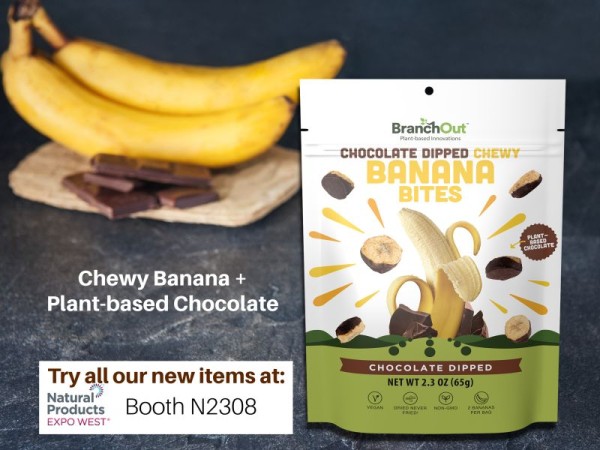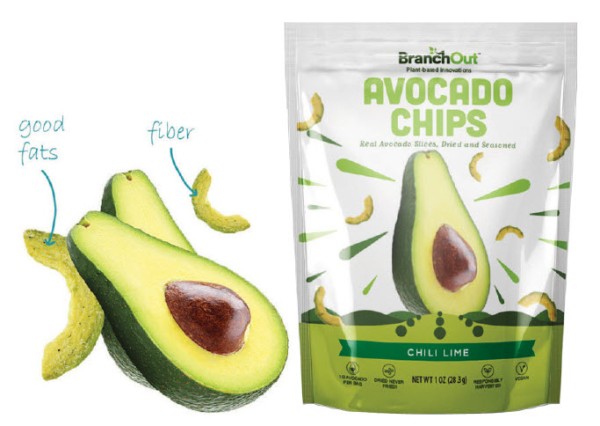Weakness in BranchOut Food, Inc. (NASDAQ: BOF) stock should be viewed as an opportunity. In fact, averaging in at these levels may be a gift that keeps on giving throughout 2023, as recent news further supports the case that BOF stock presents a value investment proposition too good to ignore.
For those new to BOF, the company's stock has faced harsh reception since going public two weeks ago. Still, despite being relentlessly pushed lower since its debut, recent news from the company fuels rational expectations that the path of least resistance for BOF stock moving forward is higher. In fact, an appreciable increase could be in the cards sooner than expected. Frankly, there's a solid case to be made that shares should not have traded lower, especially considering the company only has about 1.2 million in the float and is on the heels of two blockbuster deals with two of the country's largest retailers.
Logic dictates that deals of that caliber should add to a company's valuation, not take from it. And given the potential near-term value of its latest contracts, that logic should be applied here, too. Specifically, BOF announced securing a deal with Walmart (NYSE: WMT) to supply 2,250 stores with its innovative dehydrated food products. Far from ending its news cycle there, they additionally announced a commitment from Costco (NASDAQ: COST) a day later, which expands upon an already accretive vendor relationship. Undoubtedly, both deals are value drivers. Thus, what's the explanation behind the stock’s decline?
Here's a possible one: reports are circulating among blogs that anywhere from 46% to 114% of BOF shares are sold short. If that's the case, recent value-creating agreements suggest that short sellers are playing with fire - and it may get hotter. After all, following its latest updates to investors, BranchOut Food showed itself shifting its accelerating pace of market penetration into overdrive.
And given the company’s deal-making prowess, those developments may transition to warp speed. From an appraisal perspective, simple math shows that the combined revenue-generating firepower from the announced deals alone can lead to a significant steepening of the BOF share price curve.

Doing the Math on BOF’s 2,250-Store Walmart Deal
The assumptions here are likely conservative, yet they still support a bullish proposition: assuming WMT purchases $1000 of products for each store, which is certainly not an overzealous expectation, BranchOut could be looking at roughly $2.25 million to fulfill the order. Remember, that's only accounting for the initial shipment. And knowing that Walmart doesn't play small ball, the initial deliveries could be higher.
Now, it gets speculative from here, but assuming the product sell-through scores as expected, without any purchase increases, BOF could stand to generate about $27 million over the next 12 months. Then, assuming gross margins of 30%, a reasonable estimate given its large production facility in Peru, BOF could be staring down approximately $8.1 million in gross profits via the WMT deal alone.
Why consider the best-case scenario and forecast a 12-month placement? Because the news of its Costco supply agreement expansion indicates that sales must have been strong enough to warrant the increase. Both WMT and Costco are notorious for being particular when making deals – even more so when it comes to expanding them. In this case, however, Costco’s meticulous sales calculations might have been a driving factor behind the updated agreement.
In its announcement, BOF indicated that COST committed to expanding BOF product placements in the company's Los Angeles region. That commitment builds on an already established working relationship with Costco, marking the third product and fourth Costco region that BranchOut Food is selling into. The Los Angeles market adds significant revenue potential to BOF’s ongoing operations in the Pacific Northwest, Northern California, and Texas regions. Reading between the lines, COST must like the sell-through rate of BOF products. If they didn’t, why would they expand the agreement? Again, the secured expansion provides support for the bullish expectations surrounding its Walmart deal.
Thus, it begs the question: why are people shorting a stock like BOF, considering it has two significant deals on the books and potentially more in the queue? The fact that BOF has only 1.2 million outstanding shares makes the behavior even more curious. The best thesis to support their position is the belief that BOF will require a capital raise to fill the initial orders. While anything is theoretically in play, needing additional money at this point in time may be an aggressive theory. Remember, BOF just went public, raised about six million dollars, and already has a fully functional and operational manufacturing facility to produce its branded foods.
So, that case appears weak. Nevertheless, there are still sellers in the market. Stocks don't move lower when bids outweigh the ask; however, with limited shares, an argument is made about where these shares were borrowed. If they weren't, it's a "naked" short position regulated by rules. If market makers had to short shares to fill orders, they, too, would need to flatten their books in short order. The SEC has implemented and enforced policies to ensure that both types of "short" positions are kept in check. Reg SHO is one of those tools.

Near-Term Compliance With Reg SHO
Compliance with Regulation SHO began on January 3, 2005, intended to update short sale regulation in light of numerous market developments since short sale regulation was first adopted in 1938. It specifically addresses concerns regarding persistent failures to deliver and potentially abusive "naked" short selling, a practice that can undermine market stability and erode investor confidence. The Commission has amended Regulation SHO several times since 2005 to eliminate certain exceptions, strengthen specific requirements and reintroduce the price test restriction.
As initially adopted, Regulation SHO included two major exceptions to the close-out requirement: the "grandfather" provision and the "options market maker" exception. However, due to persistent concerns about failures to deliver and the Commission’s continued observation of certain securities with failure to deliver positions that were not being closed out under the existing requirements, the Commission eliminated the "grandfather" provision in 2007. In 2008, the Commission eliminated the "options market maker" exception.
In addition, the Commission adopted temporary Rule 204T in 2008 and final Rule 204 in 2009, which further strengthened the close-out requirements of Regulation SHO by applying close-out requirements to failures to deliver resulting from sales of all equity securities and reducing the time frame within which failures to deliver must be closed out.
Then, in 2010, the Commission adopted Rule 201 of Regulation SHO. Rule 201 restricts the price at which short sales may be affected when a stock has experienced significant downward price pressure. Rule 201 is designed to prevent short selling, including potentially manipulative or abusive short selling, from further driving down the price of a security that has already experienced a significant intra-day price decline. Moreover, the Rule aimed to facilitate the ability of long sellers to sell first upon such a decline. Regulation SHO's four general requirements are straightforward and are available to read through a simple Google (NASDAQ: GOOG) search. Based on the rules, there are consequences.
As a result of compliance with Rule 204, generally, a participant's failure to deliver positions will not remain for 13 consecutive settlement days if, for whatever reason, a participant of a registered clearing agency has a fail to deliver a position at a registered clearing agency in a threshold security for 13 consecutive settlement days, the requirement to close-out such position under Rule 203(b)(3) remains in effect. In other words, the short window of open season on BOF stock is starting to close. By July 1, 2023, BOF shares, considering the position to be covered, are likely higher than lower. (https://www.sec.gov/investor/pubs/regsho.htm)
Standing "Naked" in the Position
The other instance of short selling is the "naked" side. In a "naked" short sale, the seller does not borrow or arrange to borrow the securities in time to deliver to the buyer within the standard settlement period. As a result, the seller fails to deliver securities to the buyer when delivery is due (known as a "failure to deliver" or "fail"). Failures to deliver may result from either a short or a long sale. Notably, there may be legitimate reasons for a failure to deliver.
For example, human or mechanical errors or processing delays can result from transferring securities in physical certificates rather than book-entry forms, thus causing a failure to deliver on a long sale within the standard settlement period. Also, a failure may result from "naked" short selling. For example, market makers who sell short, thinly traded, illiquid stock in response to customer demand may encounter difficulty in obtaining securities when the time for delivery arrives.
Here's the rub and the issue providing some breathing room for the market makers: "Naked" short selling is not necessarily a violation of the federal securities laws or the Commission's rules. In certain circumstances, "naked" short selling contributes to market liquidity.
Legal, but Not the Wild West of Trading
For example, broker-dealers that make a market in a security generally stand ready to buy and sell the security regularly and continuously at a publicly quoted price, even when there are no other buyers or sellers. Thus, market makers must sell a security to a buyer even when there are temporary shortages of that issuance. This may occur if there is a sudden surge in buying interest in that security or if few investors are selling the security at that time.
Because it may take a market maker considerable time to purchase or arrange to borrow the security, one engaged in bonafide market making, particularly in a fast-moving market, may need to sell the security short without having arranged to borrow shares. This is especially true for market makers in thinly traded, illiquid stocks, as few shares may be available to purchase or borrow at a given time. Still, it's not the wild west of trading anymore.
Failures to deliver that persist for an extended time may result in a sizeable unfulfilled delivery obligation at the clearing agency where trades are settled. Regulation SHO is intended to reduce the number of potential failures to deliver and limit the time in which a broker can permit a failure to deliver to persist. For instance, as explained above, Regulation SHO generally requires firms that clear and settle trades to close out a failure to deliver resulting from a short sale by the beginning of regular trading hours on the settlement day following the trade date. In other words, the window is closing on the "naked" as well. (https://www.sec.gov/investor/pubs/regsho.htm)
BranchOut Food is Fundamentally Strong
And that could be excellent news for the BOF bulls. Remember, the "LONG" side of the trade, backed by solid fundamentals, is a much safer place to reside than sitting on shaky short seller ground. Losses on that side of the transaction are unlimited, and portfolios have been known to get wiped out in seconds on positive company updates. That may be the endgame for shorts in the BOF trade. In fact, failing to cover their tidy gain at current levels could result in a scorching burn if BOF has more rev-gen news in the queue - and expectations are that they do.
If that's the case, the accretive nature of the combined income firepower makes the forward-looking multiple almost absurdly low. Keep in mind that BOF is showing itself to be a formidable player in a food space they are helping redefine. The company’s dehydrated foods are better and fresher, and its growth is scalable from a factory capable of fulfilling additional deals alongside the two major ones just announced.
All told, betting against BOF may not be the most prudent course for investment action. Yes, it's fair for investors to play show and tell with companies, short-selling the stock until they show substance. But BOF is showing that substance now, demonstrating they can and will play in the big leagues of retail. Moreover, the company has the capital on hand to fuel growth and can ride a 2023 deal-making tailwind that can transform the company into a significant revenue-generating business. That trifecta of factors provides more than ample ingredients to foster success, indicating that BOF stock may present a value proposition too tasty to ignore at current levels.
Disclaimers: Trendingsmallcaps.com (TSM) is responsible for the production and distribution of this content. TSM is not operated by a licensed broker, a dealer, or a registered investment adviser. It should be expressly understood that under no circumstances does any information published herein represent a recommendation to buy or sell a security. Our reports/releases are a commercial advertisement and are for general information purposes ONLY. We are engaged in the business of marketing and advertising companies for monetary compensation. Never invest in any stock featured on our site or emails unless you can afford to lose your entire investment. The information made available by TSM is not intended to be, nor does it constitute, investment advice or recommendations. The contributors may buy and sell securities before and after any particular article, report and publication. In no event shall TSM be liable to any member, guest or third party for any damages of any kind arising out of the use of any content or other material published or made available by TSM, including, without limitation, any investment losses, lost profits, lost opportunity, special, incidental, indirect, consequential or punitive damages. Past performance is a poor indicator of future performance. The information in this video, article, and in its related newsletters, is not intended to be, nor does it constitute, investment advice or recommendations. TSM strongly urges you conduct a complete and independent investigation of the respective companies and consideration of all pertinent risks. Readers are advised to review SEC periodic reports: Forms 10-Q, 10K, Form 8-K, insider reports, Forms 3, 4, 5 Schedule 13D. For some content, TSM, its authors, contributors, or its agents, may be compensated for preparing research, video graphics, and editorial content. Trendingsmallcaps.com has been compensated up to ten-thousand-dollars cash via wire transfer by a third party to produce and syndicate content for BranchOut Food, Inc. for a period of one month. As part of that content, readers, subscribers, and website viewers, are expected to read the full disclaimers and financial disclosures statement that can be found on our website. The Private Securities Litigation Reform Act of 1995 provides investors a safe harbor in regard to forward-looking statements. Any statements that express or involve discussions with respect to predictions, expectations, beliefs, plans, projections, objectives, goals, assumptions or future events or performance are not statements of historical fact may be forward looking statements. Forward looking statements are based on expectations, estimates, and projections at the time the statements are made that involve a number of risks and uncertainties which could cause actual results or events to differ materially from those presently anticipated. Forward looking statements in this action may be identified through use of words such as projects, foresee, expects, will, anticipates, estimates, believes, understands, or that by statements indicating certain actions & quote; may, could, or might occur. Understand there is no guarantee past performance will be indicative of future results. Investing in micro-cap and growth securities is highly speculative and carries an extremely high degree of risk. It is possible that an investors investment may be lost or impaired due to the speculative nature of the companies profiled.
Media Contact
Company Name: Trending Smallcaps
Contact Person: Jeffrey Allen
Email: Send Email
Country: United States
Website: trendingsmallcaps.com














